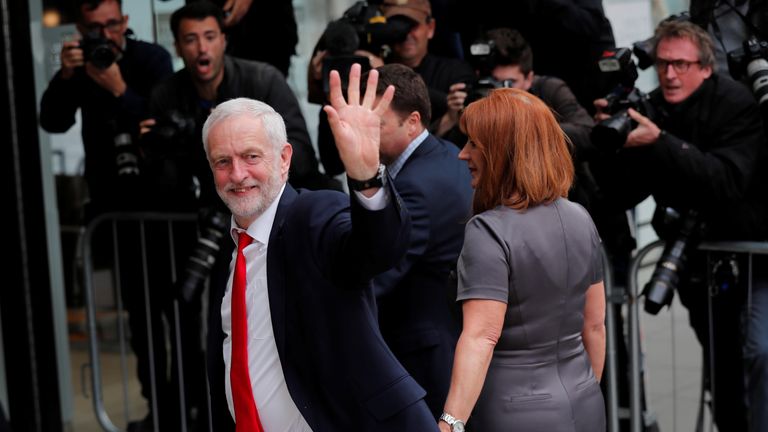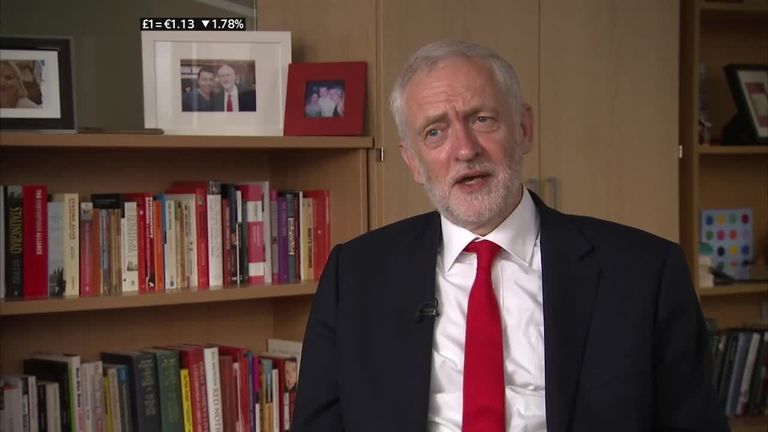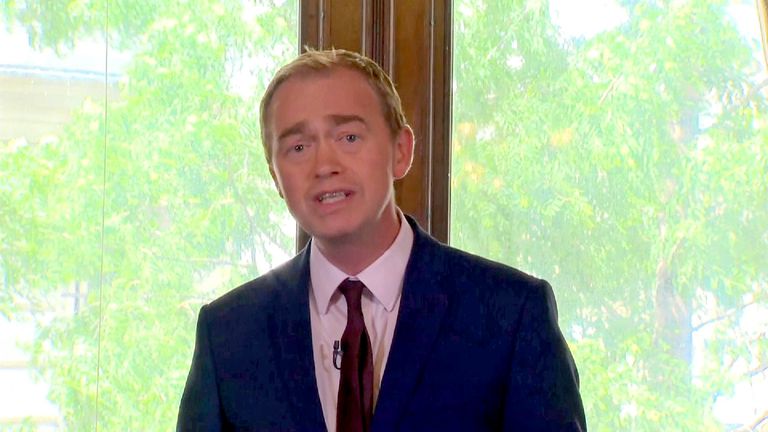What Jeremy Corbyn should do next after General Election gains
Political Correspondent Tamara Cohen examines what the Labour leader has to do now to capitalise on his surprise gains.
Friday 9 June 2017 16:37, UK
It was a result many in Labour HQ didn't dare to hope for.
Jeremy Corbyn unexpectedly gained 29 seats and the biggest increase in vote share by any party since the Second World War. Impressive, but not a win.
He told Sky News that Theresa May had lost the election and should resign.
::
::
But currently, Mr Corbyn has no path to Number 10, with Mrs May set to stay on and cobble together a working majority with the 10 Democratic Unionist MPs.
So what happens next? Mr Corbyn now has a huge challenge and an opportunity.
::
::
Having dramatically outperformed expectations, he has strengthened his position in his party and there is little doubt he stays on as leader.
Mrs May is discredited by the fact that a party which the Conservatives dismissed as an unelectable shambles gave the Tories a run for their money.
He won't be walking into Number 10. Even with a rainbow alliance of 14 Lib Dems, 35 Scottish Nationalists, four Plaid Cymru and one Green MP, which he has ruled out, it doesn't add up to the magic number of 326.
His challenge is to unite his party at a time when talented critics, who have so far shunned his frontbench, may be open to working with him.
::
::
He and his allies may be reluctant to extend a hand, but with the Tory party set for a period of turmoil, unity would be Labour's strength.
He can also put pressure on a weakened Theresa May, whose agenda from Brexit to public services will need to change.
A source close to Mr Corbyn told me: "She has no mandate for reducing pensioner incomes; for cutting the winter fuel allowance; for the dementia tax; for fox-hunting; for taking away free school lunches or a race-to-the-bottom Brexit."
There will be Tory MPs who agree with some of that, and the challenge for Mr Corbyn - always happier on the campaign trail than managing the House of Commons - is to use his new strength effectively to inflict defeats on the Government.
Seven weeks ago, Labour went backwards at the local elections.
::
::
Last night, from South Stockton in Yorkshire, to Weaver Vale in Cheshire and Canterbury in Kent (Tory-held for more than 100 years), the party won seats with its radical programme.
A strategy of holding rallies in a lot of safe - or apparently out-of-reach - seats had seemed ill-targeted at times. But it was closely influenced by the almost daily focus groups at Labour HQ which showed areas such as Warrington, Crewe, Colne Valley and Swindon (where Labour increased its majority but didn't win) were very much in play.
Insiders believe the turning point was his manifesto. Billions of pounds for the struggling NHS, more money for schools, no more tuition fees and a promise that only those earning more than £80,000 would pay higher taxes. It was positive; it was hopeful, and most of all it appealed to young voters.
And as Mr Corbyn sold it in TV interviews, he seemed increasingly confident and energised, as Mrs May - deploying attack lines - seemed nervy and uncomfortable.
::
::
He was also gifted a Tory manifesto which MPs admitted to me privately at the time was a disaster.
Many thought the social care policy was botched, there were no sunlit uplands in sight and discussion of fox-hunting took voters' minds back to the pre-David Cameron "detoxification" era.
Tories say their presidential-style campaign - focused on Mrs May - ignored the economy and therefore failed to rebut Labour's spending plans.
Mr Corbyn has shown his party he can make gains on a more left-wing manifesto than they have had in 30 years.
The Conservatives - even if their leader changes - will also need to take it on board.







